Alagi Yorro Jallow
Part I
Fatoumatta: The 2021 presidential elections have finally come and gone. The fever-pitched atmosphere that characterized and inundated the polity pre-election has been doused by the seemingly credible, free, and fair election of presidential Adama Barrow. As a result, the pre-election doomsday prophesies and innuendoes that the presidential election would make or mar the country’s unity has come to pass.
The commendable performance of the umpire of the elections under the stewardship of Alhagie Alieu Momar Njie and Mr. Sambujang Njie, CEO of the Independent Electoral Commission (IEC), should be recognized and must be commended for conducting a credible, free and fair, inclusive, and transparent election process.
President-elect Adama Barrow secured a second term as President in the biggest test of the Gambia’s emergent democracy since dictator Yahya Jammeh’s 22-year rule ended. President Barrow, however, garnered 53.2% of the votes. At the same time, his nearest rival emeritus lawyer Abubacarr Ousainou Darboe leader of the United Democratic Party (UDP), obtained 27.7%.
As a result, Alhagie Alieu Momarr Njai, chairman of the Independent Electoral (IEC)Commission, declared incumbent president Adama Barrow in the December 4, 2021, presidential elections.
Fatoumatta: This is the first presidential election in 27 years, not to include former president Yahya Jammeh, who has remained in exile in Equatorial Guinea since being defeated by President Adama Barrow in a 2016 presidential election. Overall, the 2021 presidential election “conforms to national and international standards,” the African Union’s observer mission said in a statement.
In addition, a coalition of civil society organizations in the Gambia and international election observers declared the election “free and fair” despite a rejection of former Vice President Abubakar Ousainou Darboe and, leader of the United Democratic Party (UDP), and Mr.Mama Kandeh, opposition leader of the Gambia Democratic Congress (GDC).
Likewise, the conduct of Gambia’s political gladiators (Honorable Halifa Sallah of the People’s Democratic Organization for Independence and Socialism (PDOIS), doyen, and dean of Gambian politics other presidential candidates conceded to the defeat and accepted the election results as the will of the Gambian people) must also be acclaimed for their democratic and patriotic stance.
However, more significantly, the gesture of Mr. Abdoulie Jammeh, Dr.Isamila Ceesay, Ahmed Mai Fatty, and other politicians’ symbolic acceptance of the outcome of the results and phone calls to concede defeat and congratulate President-elect Adama Barrow even before and after the final results were officially announced should highly be extolled and would go down well in the annals of history. Never in the history of our burgeoning democracy has such magnanimity and statesmanship been exhibited by politicians aspiring for the land’s highest office.
The gesture, without a doubt, forestalled any hatched plans by evil does to scuttle the latter stages of the elections. This is a milestone that is indelible in the history of the Gambia.
Fatoumatta: The 2021 presidential election is the first election to be conducted since the defeat of former president Yahya Jammeh in 2016 by President Adama Barrow that saw an opposition candidate winning the presidential elections, and the results allowed to stand.
This is also a feat worthy of acclamation, good for the Gambia’s political development. Every discerning Gambian should be proud of. The wind of change has suddenly filled the atmosphere. You can almost touch it in the length and breadth of the Gambia. You can feel it in the Gambian Diaspora community parts, and you can sense it. Everywhere you go, Gambians are looking forward to a government of the people, by the people, and for the people.
Fatoumatta: Anything short of this, the power and voices of the people through the ballot, would surely be put to good use once again in the coming general elections in April 2022. However, while the majority of Gambians are still basking in the euphoria of President Adama Barrow’s victory, discerning Gambians are concerned about the “opposition” in Gambian politics.
Is there an opposition in our nascent political development? Opposition in politics means “the major political party opposed to the party in office and prepared to replace it if elected.” President Barrow’s National People’s Party (NPP) has emerged as the dominant political party in 2021.
From developments in the just concluded presidential elections, it will be a significant political party in the Gambia. A salient fact here is that majority of the supporters of the National People’s Party (NPP were mainly from other dominant opposition members, mainly from the mighty United Democratic Party( UDP), the former ruling Alliance for Patriotic Re-orientation and Construction (APRC), the Gambia Democratic Congress (GDC) and other peripheral parties.
For instance, most of the senior executive members of the National People’s Party (NPP) were primarily from other opposition party’s as senior members mentioned above.
Fatoumatta: The second term of President Barrow has not officially taken overpower, and we are already witnessing an overwhelming amount of politicians decamping to President Barrow in his NPP-led coalition government.
In other climes, politicians are identified as “the opposition” and are well-grounded in such parties. Is it that in Gambian politics, the end justifies the means? It seems it does not matter where you are coming from or how you made money, or where it is gotten from, provided you have got loads of it, you can switch to any political party and aspire for any office in the land and win. Most of these politicians and former presidential candidates who endorsed President Barrow appear to be anticipating ministerial and top positions and foreign service appointments in the NPP-led government. However, they all have suddenly become “Messiahs” of change. In some parts of the country and the Gambia Diaspora community is automatically an employment opportunity for some people, irrespective of competence, antecedence, or integrity; likewise, the prominent defectors from other political parties.
Essentially, some political parties do not possess any clear-cut and well-defined ideology. Instead, it seems, politics in the Gambia is akin to the “stomach infrastructure” ideology popularized by Jean -Francois Bayart, author of “The State in Africa: The Politics of the Belly.
Fatoumatta: Nevertheless, there have been opposition members since our emergent democracy since the First and Second republic. There have been people who have vociferously and silently been playing the role of the opposition in trying to ensure that the Gambia carves out a healthy democratic development. In their quest to legitimize a viable opposition, some unsung heroes have died and lost everything along the way, believing in their cause.
They have lost an arm and a leg but remained steadfast and dogged in the opposition movement. Some have resisted tantalizing overtures and juicy appointments of sitting administrations, believing instead in a formidable opposition. These are the genuine opposition members who gave victory to incumbent President Adama Barrow in 2016 with their time, efforts, sweat, blood, and lives, not some now masquerading as apostles of change.
These people were the ones who initially painstakingly built this “Barrow brand” most people are now clamoring for and sadly exploiting.
President-elect Adama Barrow should be wary of sheep in wolf’s clothing, screaming change, acting like proponents of change but are not necessarily agents of change. Perusing some of their self-aggrandizement motives, they exploited the popularity of President Barrow and the overwhelming cries of teeming Gambians for change at the helms of affairs.
However, most are opportunists and might reveal their true colors after officially being sworn in on January 19, 2022.
Fatoumatta: The presidential election is over, and challenging problems await President-elect Adama Barrow. He needs capable hands, proven and tested, with like-mind vision, capable of taking the Gambia to greater heights. Regardless of political party affiliation, ethnicity, creed, and gender, he needs skilled individuals who believe in the Gambia project.
He needs to act as a leader of the Gambia and Gambians, not a leader of a political party or particular region of the country. He needs seasoned professionals and technocrats from far and wide, home and abroad, who are willing to build a brighter future for the teeming youths of the Gambia. President Adama Barrow’s journey began sometime in 2016 when he got elected into office.
It has taken him a dozen-plus five years to achieve his goal. He knows how arduous and pain-staking it was, eventually getting this elusive victory; credited to the teeming populace who believes in him. It is now his turn to meet the aspirations of teeming Gambians looking up to him for the prophesied change they voted for. With great power come greater responsibilities. Whoever much is given, much is expected. There are great expectations on the shoulders of president Barrow. The timber and caliber of the “politicians and technocrats” he appoints as his ministers would be scrutinized serially. Indeed, they would determine the direction his government is going to take. However, the fire of change is still burning.
Fatoumatta: The expectation of hope is still alive within the populace. The passion with which Gambians came out en-masse to vote for an agent of change, whose integrity and honesty are parallel to none, is still blooming.
Surely, Gambians would not want to be disappointed. Surely, Gambians would not want the flame to be extinguished. Gambians would not want their hope to be dashed. Gambians would not want their efforts to be in vain. The National Assembly elections are not too far away; however, before we get there, Gambians would like a bigger, better, and more extraordinary Gambia Anything less, and the President would surely face the music.

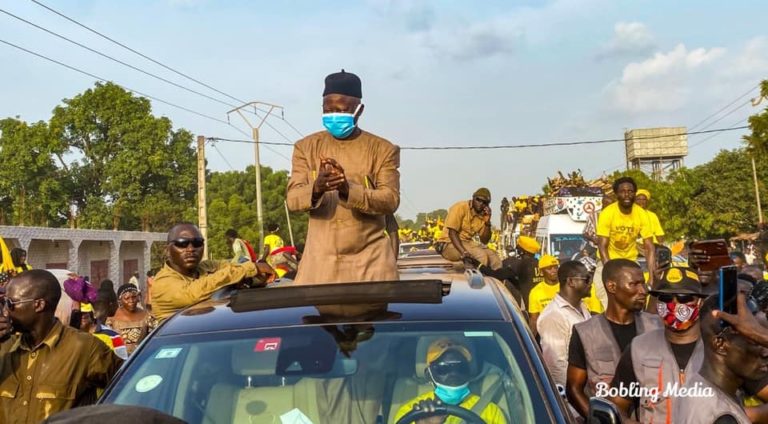
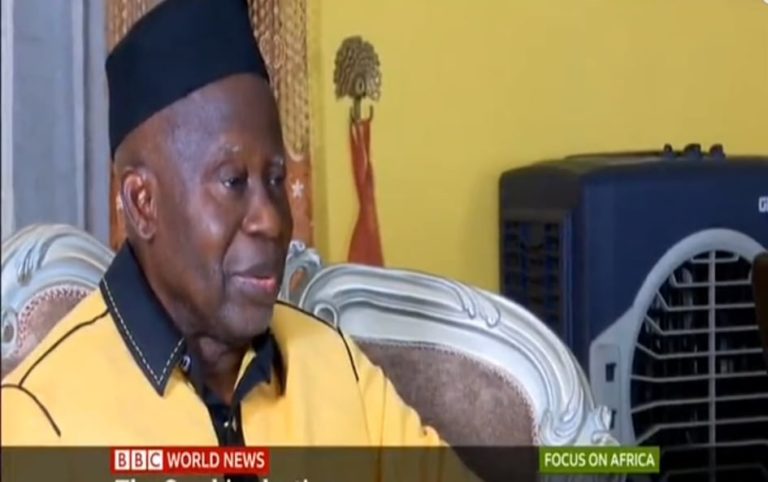
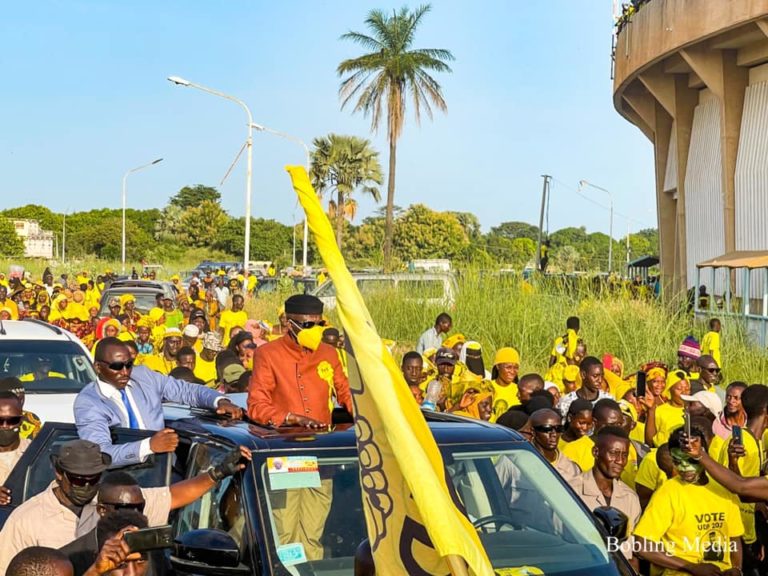
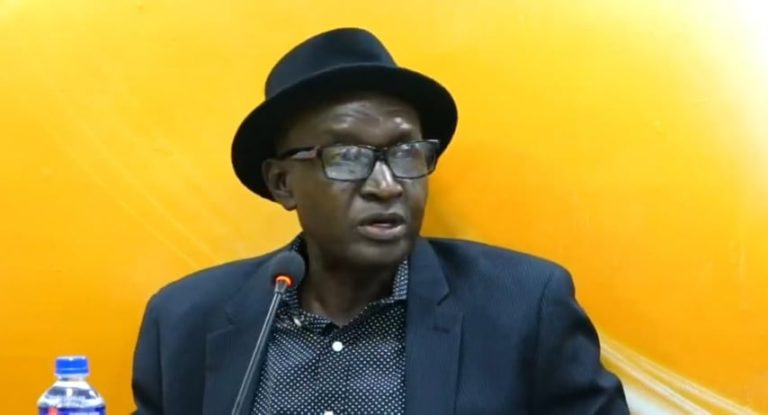
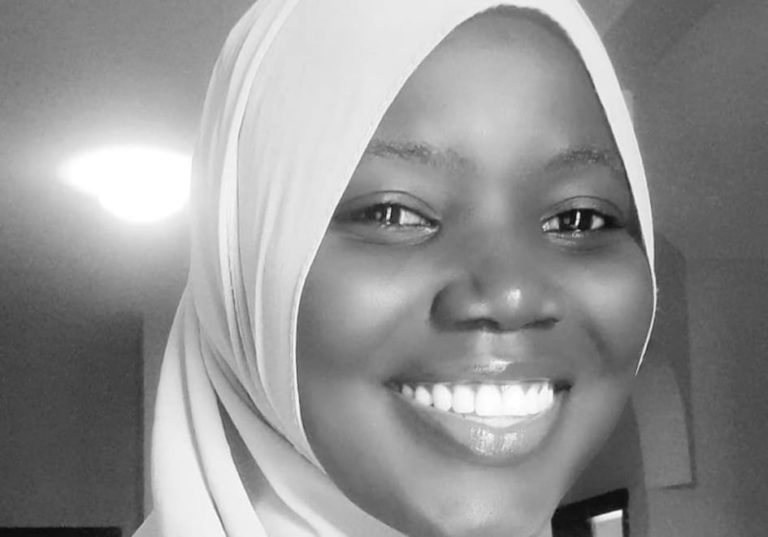
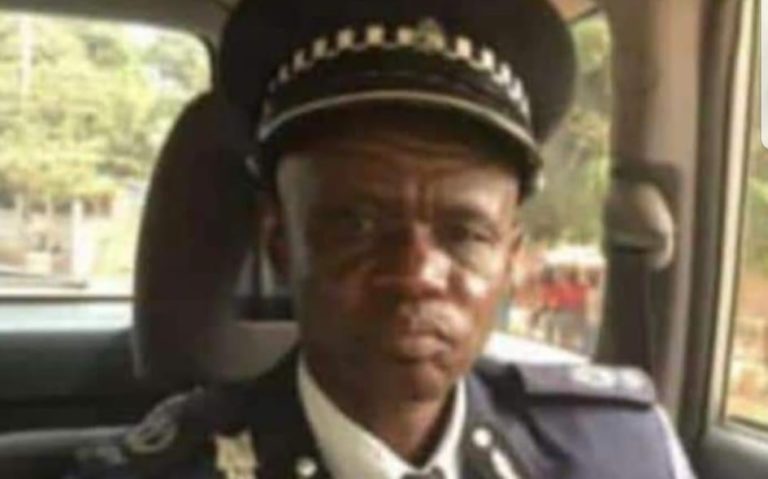
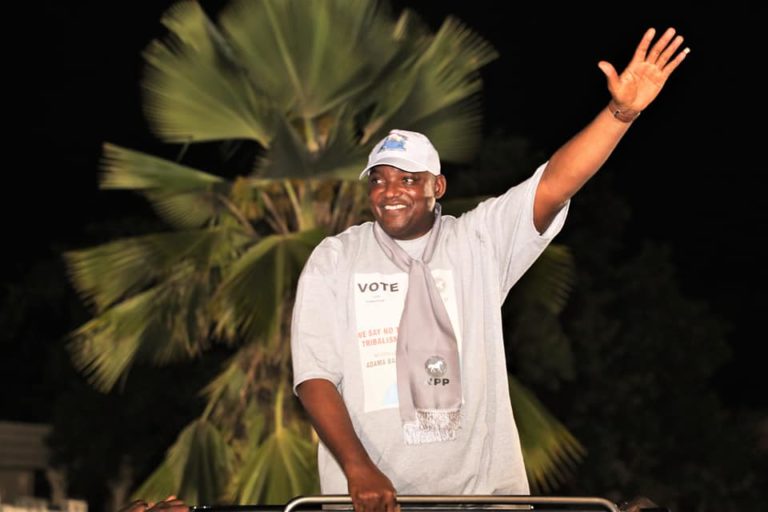
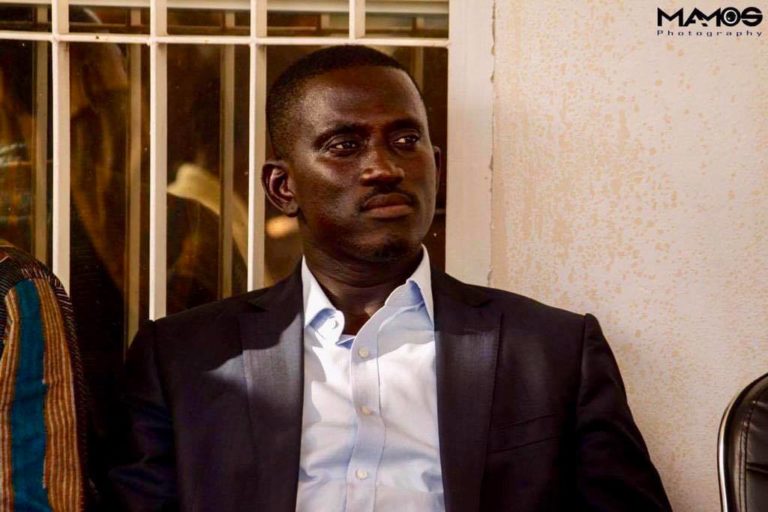
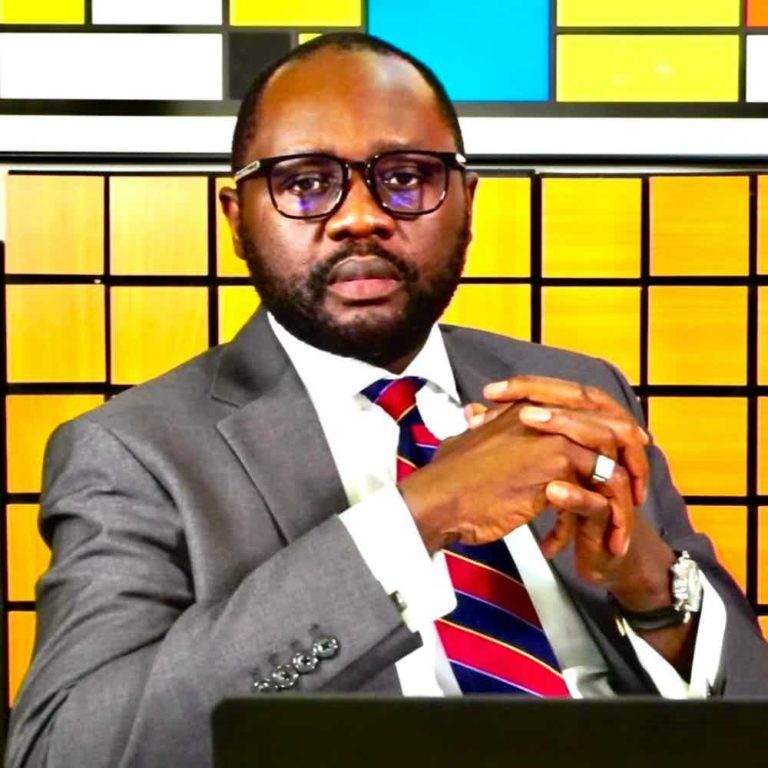
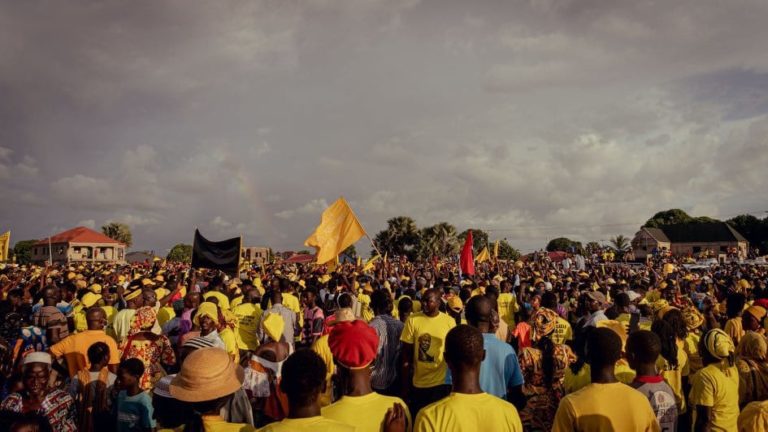
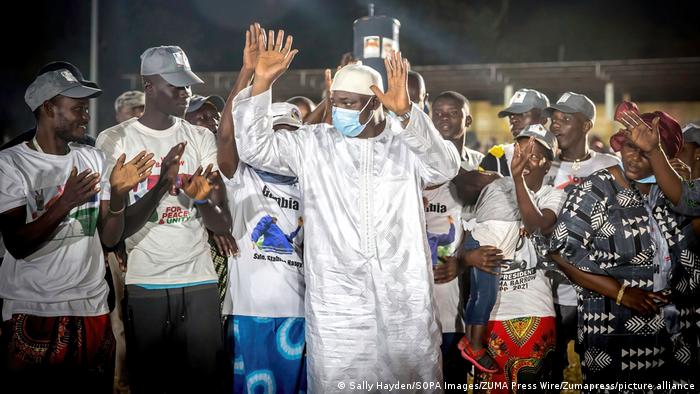
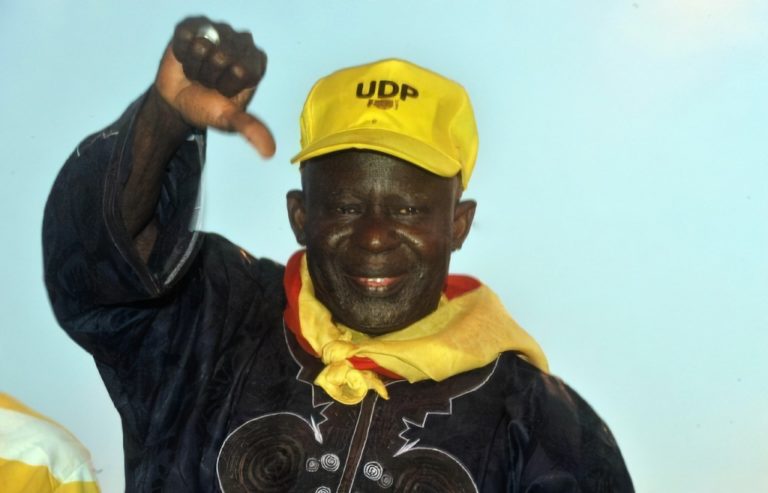
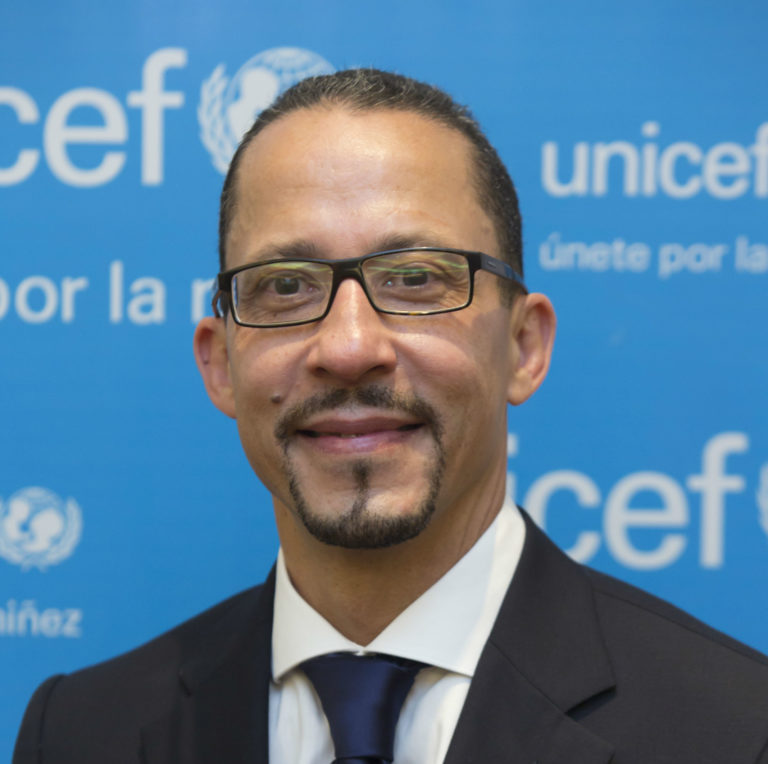

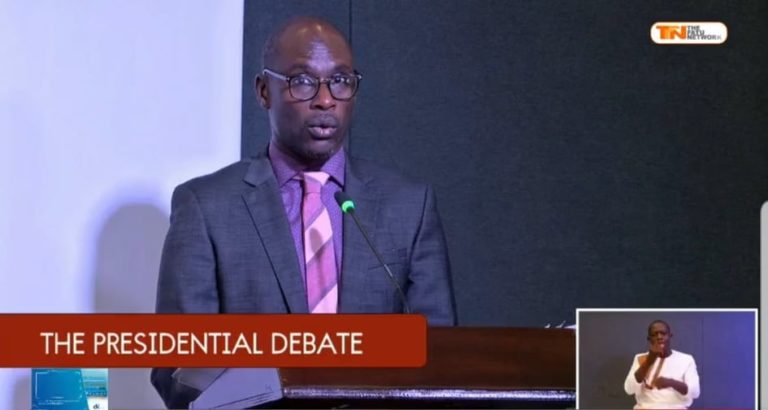

The Gambia’s Nelson Mandela or Donald Trump? It’s Time for Lawyer Darboe and the UDP to Move On!
By Sana Sarr, USA
The Supreme Court has dismissed the UDP’s election petition. Since Supreme Court decisions are final and cannot be appealed, Lawyer Darboe needs to make a concession speech and allow the nation to move on. It’s the honorable thing to do. In Mandinka we say, “Mbirri baa daa kenseng buka boye”, which loosely translates to “a big wrestler does not fall with an empty mouth”. It means a prominent fighter will always have excuses or try to explain away his defeat. For many years, members and supporters of the UDP have been boasting that they are the biggest opposition party in the country.
It was therefore no surprise that after President Barrow’s unprecedented victory in the December 4th elections, the party found it difficult to accept the results. Barrow won 53% to the UDP’s 23 %. In true “Mbirri Baa” fashion, UDP’s leader, Lawyer Darboe partnered with Yaya Jammeh’s surrogate, Mama Kandeh, along with independent candidate, Essa Faal, to jointly reject the results. A day later, Faal did a “turn around” and conceded.
Darboe remained defiant and proceeded with a petition to the Supreme Court claiming, against reports by both local and international elections observers, that the elections were neither free nor fair. We live in a democracy and parties have a right to contest results if they feel wronged. Of course, feelings alone are not sufficient to overturn elections. Petitioners need to provide evidence to prove their case before the results can be invalidated.
The first eyebrow raiser was that the party failed to petition the Independent Electoral Commission (IEC), or the winning party (NPP). People were surprised that the petition only named Adama Barrow, the individual. It was only after observers pointed out this strange action that the UDP amended their petition to add the IEC and later the NPP. This apparent oversight lent credence to the notion that the petition was more of a fishing expedition than a serious contention to the results.
Many also found it strange that the UDP advised its supporters to not discuss the petition or its merits. This was strange because a petition of such nature is not only a legal battle but also a battle of public opinion, and so it was confusing why the party would not be doing everything it could to win in the court of public opinion. Still, Gambians gave the petition a chance and waited for a verdict from the nation’s highest court.
Tuesday, the Supreme Court of The Gambia dismissed the petition on the basis that the petitioner had failed to follow proper procedure in their filing. The court also ordered the UDP to pay a D100,000 fine. In his reaction to the verdict, Lawyer Darboe remains defiant that he does not consider the dismissal a loss because it was based on a technicality rather than the merits of its claims. Personally, I find it curious that the UDP, with all the experienced lawyers in its ranks, including party leader, Ousainou Darboe, and party spokesperson, Almami Taal, did not know the laws governing election petitions. I would also not be surprised if the “error” in their filing was conveniently ignored just so they can make this claim (that it was only thrown out on technicality rather than merit) knowing that there was not enough merit to make convincing arguments had the case gone ahead…but that’s just the cynic in me, so I digress.
In addition to Darboe’s reaction to the dismissal, I came across a second reaction from a UDP official that caught my eye. This one was asking for the UDP to take their petition to the ECOWAS court. Although this is not (yet) an official party position, the fact that it’s from a party official makes it noteworthy. I’m sure the party knows that taking the petition to ECOWAS would be an exercise in futility, so I have no doubts that it’s mere face-saving rhetoric. However, I would like to point out that such rhetoric coming from party officials can have dire negative consequences, so the UDP leadership needs to cut it out clearly and forcefully.
For years, UDP supporters have seen Lawyer Darboe as The Gambia’s Nelson Mandela. While it’s debatable whether he is worthy of the comparison, even Darboe’s harshest critics cannot deny that he was jailed by a dictator for political reasons, and that parallel provides some basis for the Mandela reference. With that said, I would also like to point out that Mandela was not only known for his prison sentence.
Of equal significance to his legacy was his ability to put the country first and work on reconciling with his opponents in the interest of national unity. Democracy rests on a foundation of trust in the electoral system and processes. One of the fundamental pillars of a functional democracy is the loser(s) conceding defeat, congratulating and recognizing the winner. This allows the nation, especially their supporters, to accept the elected winner so that the country can move forward in peace. Failure to concede and continuing to undermine the legitimacy of the elections even after they have exhausted all legal recourse is undemocratic and irresponsible.
Now that the Supreme Court has dismissed his petition, Darboe owes it to his supporters and to the nation to do the right thing – issue a public concession. Failure to adhere to this basic tenet of democracy tarnishes his legacy. Rather than his desired comparison to Gambia’s Nelson Mandela, history is bound to remember him as The Gambia’s Donald J. Trump.